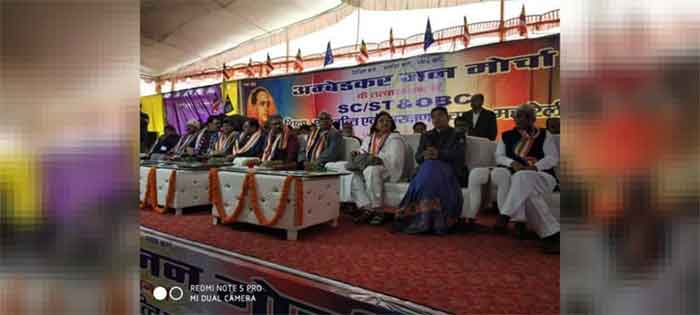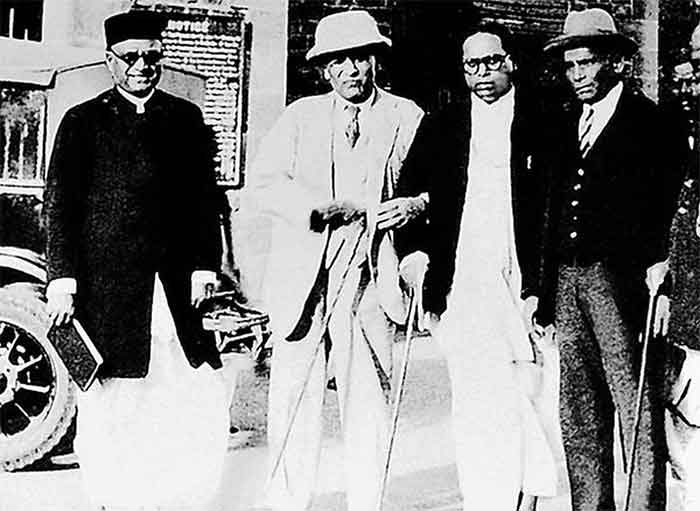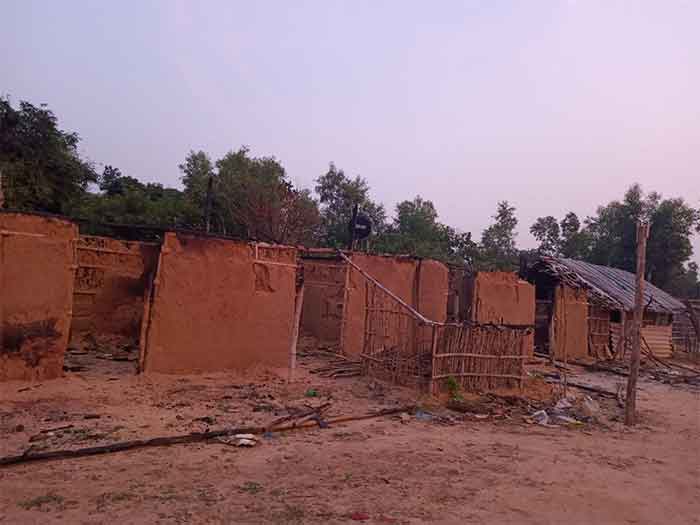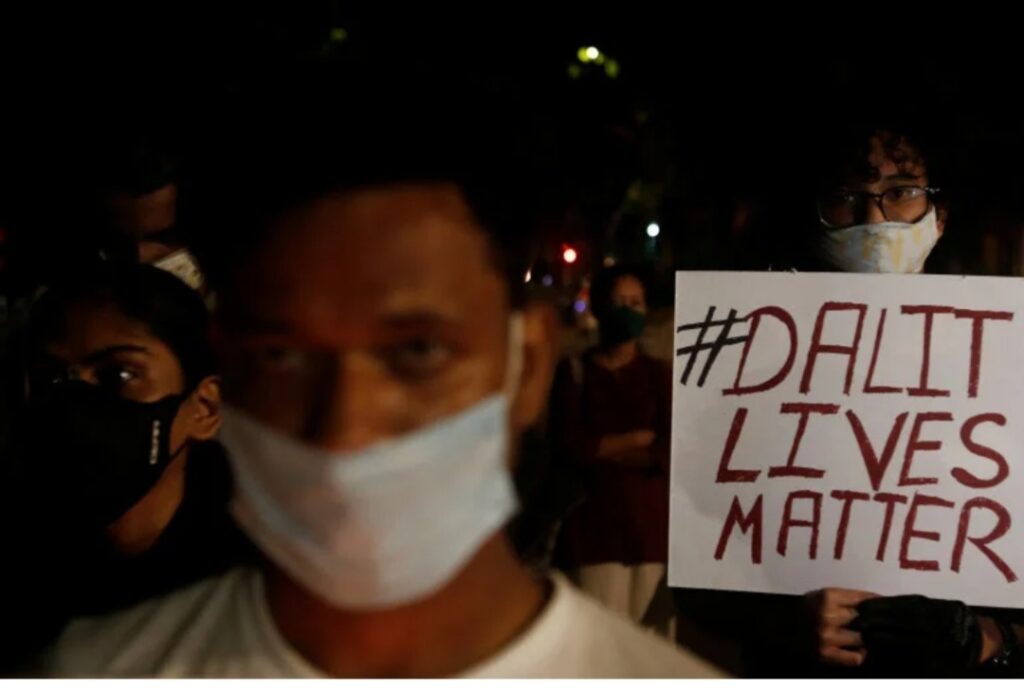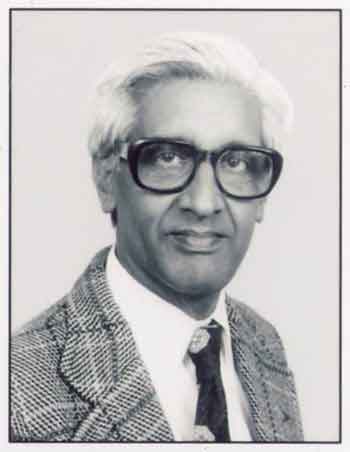
In an interview sometime back, Chandrashekhar Azad alias Ravan had said that the present is the golden period of Dalit politics. By the way, if the condition and direction of Dalit politics is seen today, then it is not visible from anywhere its golden period, but it is its downfall. On one hand, while Dalit leaders have taken refuge in anti-Dalit parties, the remaining Dalit parties have become so weak that they are unable to make any effective intervention in politics. Here the Dalit parties which had adopted caste politics have been badly defeated by the BJP because their caste politics has only strengthened the BJP’s fascist Hindutva politics. As a result, the totalitarian corporate politics of the BJP that has emerged from this has had the worst impact on Dalits, Adivasis, labourers, farmers and most backward classes. Due to privatization, reservation of Dalits in government jobs has almost ended. The relaxation of labour laws has almost wiped out all the protections given to the workers.
Dalits/Adivasis are being oppressed by the present government. Social workers, intellectuals, writers, who raised their voice for the human rights of these classes and advocated them, have been imprisoned by terming them as Maoists / anti-nationals. Feudal and capitalist forces are attacking the common people badly. The government is totally siding with these anti-people forces. The government is bent on suppressing every anti-government voice. The democratic rights of the people are being severely suppressed. Black laws are being misused openly and the existing laws are being made more brutal. People are being put in jails by imposing fake cases.
Now if we look at the current condition and direction of Dalit politics, then it is visible in its decline. Most of the Dalit leaders have either moved to the ruling party or are in alliance with it. Those who are left have either become so weak that they are afraid to speak on any Dalit issue or Dalit issues are not a part of their politics at all. The Dalit politics which was started in the name of Bahujan in North India had turned into Sarvajan during the lifetime of its founder Kanshi Ram, which was pure power politics and had nothing to do with Dalit issues. Earlier, the Republican Party of India (RPI), founded by Dr. Ambedkar, has been divided into so many pieces due to the greed of power of opportunist and individualist leaders, that it is difficult to count them. It is noteworthy that after independence, as long as the same RPI continued to do mass movement based politics on Dalit issues, it was the second largest opposition party in the country after the Congress. But as soon as the Congress broke its tallest leader Dadasaheb Gaikwad with the lure of a big post, since then this party became a pocket party of some people and got divided into many factions and became ineffective. Ramdas Athawale is also a leader of this faction who is enjoying power by tying up with BJP. Ram Vilas Paswan always kept getting ministerial posts in alliance with the ruling party. Kanshi Ram’s BSP party thrice tied up with the fiercely anti-Dalit party BJP to get the chief ministerial post for Mayawati. Chandrashekhar is also talking about taking forward this politics of Kanshi Ram.
Perhaps the politics that Chandrashekhar is doing at this time is calling it the golden age of Dalit politics. According to him, he is doing politics to further the mission of Kanshi Ram. It is not hidden from anyone that Kanshi Ram’s politics was purely casteist/communal opportunistic politics of power, which had neither any Dalit agenda nor any principles. He took pride in being opportunistic and unprincipled. He started with the slogan of system change but later they remained a part of the same system. Even after Mayawati becoming the Chief Minister four times, the condition of the Dalits of Uttar Pradesh did not improve, while many Dalit and non-Dalit leaders used power in her name for their development. Was Chandrashekhar’s alliance with Pappu Yadav in Bihar elections last year in the interest of Dalits? Pappu Yadav is so Dalit benevolent, who does not know who he was working to benefit at that time.
Therefore, it is worth considering that how much of the politics of mismatched alliances Chandrashekhar was doing in Bihar was in the interest of Dalits? Presently, Dalit politics needs to carry a radical agenda of change and not Kanshi Ram brand of opportunistic and unprincipled politics. Can Dalit politics be carried forward only by raising an army and showing a combat attitude, because many such forces have been used in the past. In fact, to save the citizenship and fundamental rights of other weaker sections of the society and minorities including Dalits, there is a need for people’s issue based democratic politics and not sharing in the present totalitarian, exploitative state power. Therefore, to call the tragedy of the present-day Dalit politics, which is victim of degradation, fragmentation, opportunism and devoid of principles, as its golden age, can only be called a joke. It has also become clear by now that caste politics alone is not going to do any good to Dalits. Therefore, Dalit politics has to adopt a radical Dalit agenda (land distribution, employment, education, health, freedom from tyranny and save democracy) and for that, instead of bargaining and participating in the politics of plunder, it has to adopt an independent politics of struggle and joining hands with secular democratic forces. All India People’s Front has been trying for a long time to give a new direction to the politics of Dalit/Adivasi, workers and minorities.
S R Darapuri, National President, All India People’s Front

